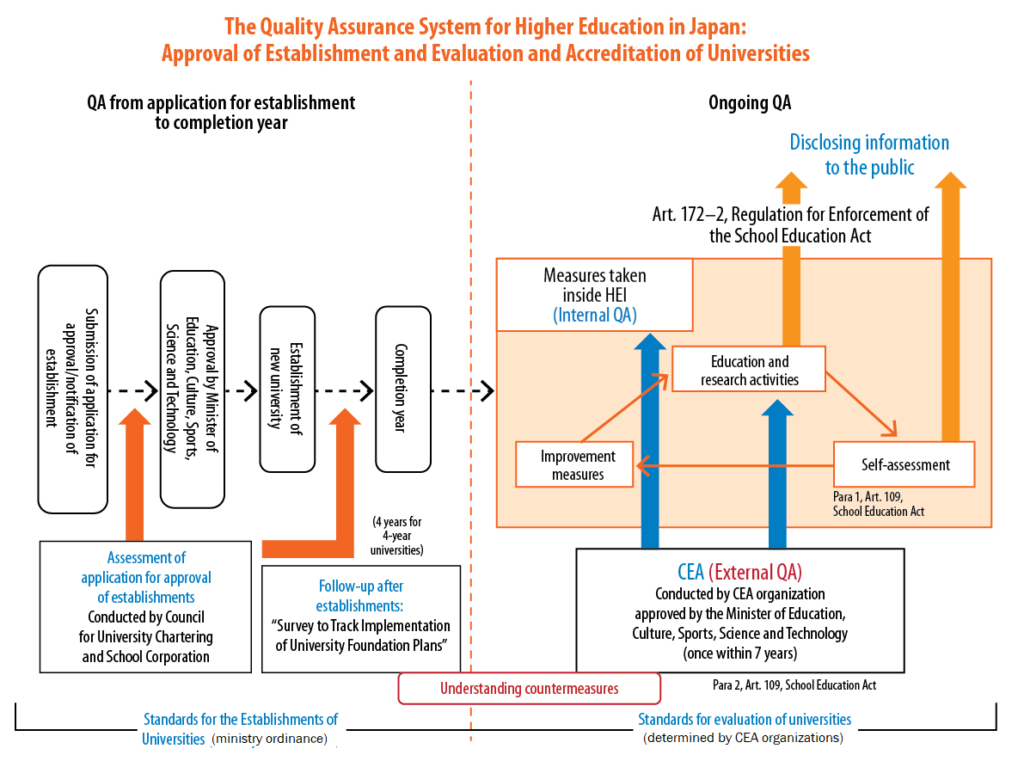In accordance with the School Education Act, the following two systems comprise the quality assurance approach for higher education in Japan:
- Approval/notification system for establishment of universities and colleges (Article 4)
- Certified evaluation and accreditation (CEA) system (Article 109, paragraphs (2) and (3)).
Each higher education institution conducts autonomous and independent quality assurance (internal quality assurance) on education and research activities. In addition, there are public quality assurance systems in place which function together with standards for establishment and other laws and regulations, such as the Approval System of the Establishment and Certified Evaluation and Accreditation (CEA).
In principle, approval of the Minister of Education, Culture, Sports, Science and Technology is required for the establishment of a university, college, or a faculty or department in an existing university and college. Standards for the establishment of higher education institutions, including the Standards for the Establishment of Universities and Standards for the Establishment of Graduate Schools, are all based on ministerial ordinance introduced by the ministry, and exist as standards for the approval process.
The CEA system is a mandatory evaluation system in which CEA organizations conduct evaluation of the status of education and research of universities, Junior Colleges, Professional and Vocational Universities, Professional and Vocational Junior Colleges, Colleges of Technology, and Professional Graduate Schools, based on standards for evaluation and accreditation made by each CEA organization. CEA is carried out periodically as stipulated in law. Institutional CEA is conducted once within seven years for universities, Junior Colleges, etc. CEA by academic discipline is conducted once within five years for Professional Graduate Schools, etc.
Universities and colleges are required not only to undergo CEA, but also to conduct self-assessment of the conditions of educational and research activities and to disclose the results.
More details including the list of CEA organizations and quality assurance of other types of HEIs are available here.
The Japan Network of Certified Evaluation and Accreditation Agencies (JNCEAA) publishes results of evaluation and accreditation conducted by all CEA organizations that join the network.

